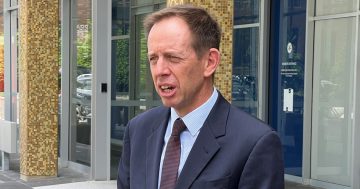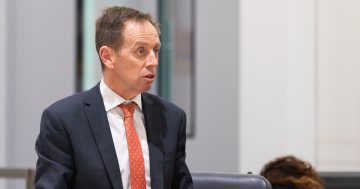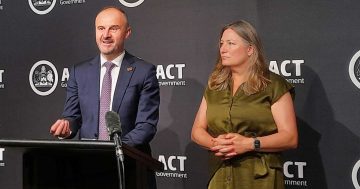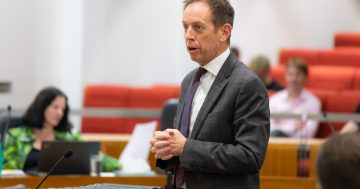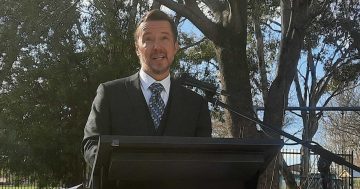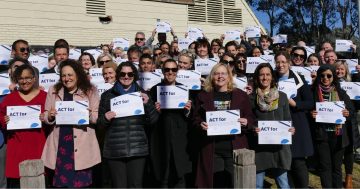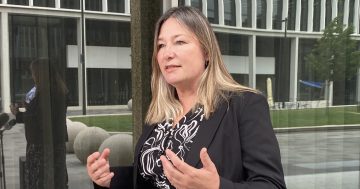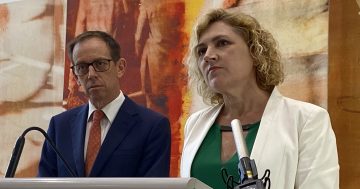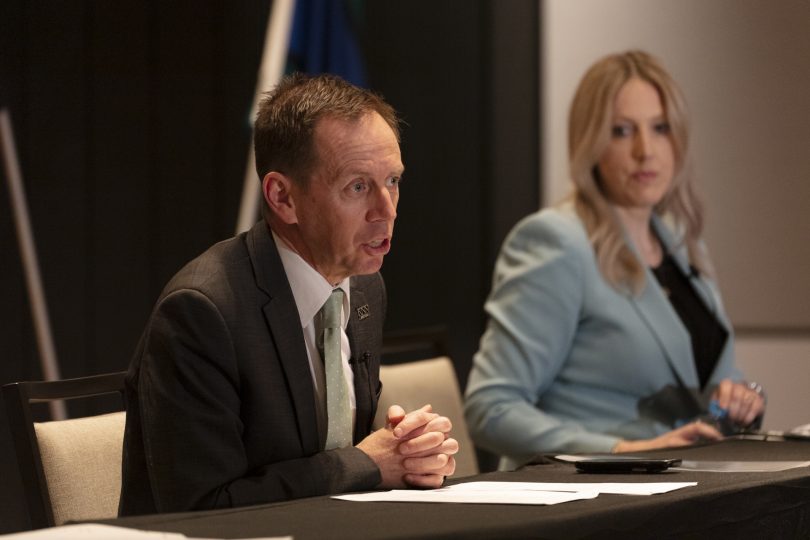
ACT Greens leader Shane Rattenbury says the ACT should use the crisis to build a better normal. Photo: Thomas Lucraft.
The ACT Greens have proposed a community recovery cabinet to help put the city back on track after the pandemic-induced economic slowdown.
Part of the party’s Supporting the Community Sector package launched at yesterday’s ACTCOSS Leaders Forum, the idea would bring peak community groups, business, unions and employers to the cabinet table to provide ongoing advice to government on about how the ACT should rebuild its economy.
ACT Greens Leader Shane Rattenbury said the ACT should use the crisis to build a better normal and not just snap back to the way things were.
”We want to bring the key community peak organisations to the table, effectively as a sub-committee of cabinet to work with ministers to build common ground on what Canberra’s recovery looks like,” he said.
”ACTCOSS, the unions, business and employers, and a range of other key community organisations need to be at the table with ministers on a regular basis to have these conversations to help identify the gaps, to work on the agreed solutions and come up with a plan to help put our city back on the path we want it to be on.”
The Greens also want to provide frontline groups with more funding, and funding certainty with five-year or longer funding agreements.
They will also provide support for the community sector to access up to date technology, improve gender equality, and greater support for drug and alcohol services.
Mr Rattenbury also flagged encouraging more electric vehicles for the community sector fleet.
ACT Greens campaign spokesperson for social inclusion and candidate for Murrumbidgee Emma Davidson said at a time when the COVID-19 pandemic has hit hard, and the more vulnerable in our community are doing it especially tough, the Greens had a real plan to tackle inequality in our city.
“We’ve had review after review telling us the same thing over decades now. We need a strong, well-funded community sector here in Canberra, and we need the government to listen and respond to the sector’s needs if we’re to make serious inroads into tackling Canberra’s growing inequality crisis,” she said.
Chief Minister Andrew Barr pledged to increase the government’s grants funding program by $350,000 to ensure organisations could purchase suitable IT equipment to help those in need.
But he mostly stood on the government’s record in handling the COVID-19 crisis, the ongoing assistance to those affected by the economic slowdown and the need for experience to guide the ACT out of recession.
He said Labor’s priority was jobs, reducing poverty and ensuring the city comes through ”this most challenging of times” stronger.
Opposition Leader Alistair Coe hit all his points about living costs, rates, taxes and charges, and Canberra’s hidden poverty, calling for a more inclusive, holistic approach to tackling the causes.
He also took aim at Mr Rattenbury for expanding the ACT’s jail.
But apart from his proposed Poverty Task Group, he offered only more announcements to come in the campaign about how to make the ACT more fair and just.
Mr Coe did tell the community sector that the Liberals would overhaul the grants application process so it was not bogged down in administration so it could get on with what it did best.
He also flagged making land available to community groups which they could leverage to provide a more stable financial situation and more permanent presence.












